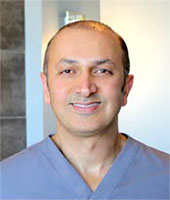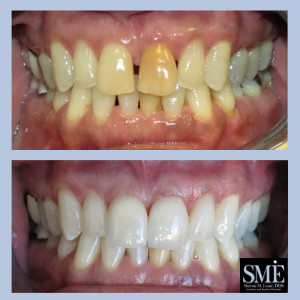
Not many may know this little-known holiday, but March 1 is Share A Smile Day. This is a wonderful holiday we would love to see more people celebrate. It is a time to spread joy through the simple act of showing off your pearly whites. It is the perfect day and reason to spread the joy and make others happy.
Before you strut the town grinning to all, make sure you have a healthy smile. Here are 5 optimal dental care tips to ensure you smile is healthy and beautifully share-worthy.
1. Prevention is Key
When it comes to good oral care, prevention is a key component to keeping your smile in optimal health. It is very important to keep up with regular dental check-ups as well as dental cleanings. It is recommended you get your teeth cleaned at least twice a year. Regularly getting your teeth cleaned is not only beneficial to your teeth, but to your overall health as well. The teeth cleaning process removes tartar and plaque from the surface of each tooth which help prevent various dental issues that begin with tooth decay which consequently can progress into cavities or worse – gum disease.
2. Floss. Floss. Floss!
One thing is for sure – If you don’t brush everyday, make it a habit to at least floss at least once a day! Many dentist have debated that flossing once a day can be more beneficial than brushing twice a day. Most will agree that good oral hygiene includes a combination of both brushing and flossing. When flossing, make sure you are flossing correctly. To much surprise, there is a wrong and right way to floss. When flossing, you want to make sure you wrap the floss in a “c-shape” while covering as much tooth surface area as possible. Ideally, you want to cover half a diameter of each tooth at each angle. Be sure to floss in an up and down motion along the outer surface of each tooth and under gum tissue. Avoid flossing to roughly, which can cause gums to bleed.
3. Brush Regularly
Brushing should be done after every meal, but not everyone is able to do that with the busy schedules most have these days. The next best thing is to at least make sure you are brushing your teeth every morning and every night. Brushing teeth regularly can help prevent bad breath, tooth decay, tooth loss, and even gum disease. Avoid brushing too hard, as this will cause gums to bleed. Most people report to brush their teeth for a minimum of two minutes, but the truth is – teeth should be brush for however long it takes for them to get cleaned.
4. Clean Your Tongue
Ever noticed a white or slightly yellow residue on your tongue? This is known as white tongue. IF you suffer from white tongue, you more than likely have inflammed papillae. This is the result of dead bacteria, debris and dead cells that get stuck to them. White tongue is a temporary problem that can be easily fixed. Most dentist would agree that it is very wise invest in a tongue scraper. Regularly brushing and /or scraping your tongue will help rid your tongue of the white residue and immediately freshen breath.
5. Change Your Diet
Diet can have a huge affect on your oral health. Teeth naturally are consistently remineralizing due to the saliva in your mouth. The saliva produced provides minerals to your teeth. The cells in teeth use these minerals to fortify themselves. A diet that promotes a healthy share-worthy smile has a lot of soluble vitamins, low levels of phytic acid (such as grains, beans and some nuts), and enough minerals to support healthy teeth. You will want to avoid foods high in starch and in sugars. The best foods have a lot of healthy fats (such as avocado, or cooking with coconut oil) and consuming healthy broths for added minerals in your diet.
Why Wait?
There is no need to wait for the perfect moment to start optimizing your smile! The time is now..and no better day than on Share A Smile Day! But you don’t need to wait for March 1st to share your smile. Spread some joy and happiness and smile at everyone you see throughout your day. Every day is a great day to show off your great smile. Have a delightful Share A Smile Day and visit our office to keep those pearly whites in tip-top shape!

 to transform smiles such as this one showed here. Dr.Louie enhanced this patient’s smile with veneers and a teeth bleaching treatment. Veneers are used to help improve the look for teeth that are discolored, worn down, chipped, broken, misaligned, uneven, irregularly shaped, and teeth with small gaps. This veneer procedure helped cover any small gaps that showed, and the teeth bleaching left our patient with a beautiful pearly-white smile.
to transform smiles such as this one showed here. Dr.Louie enhanced this patient’s smile with veneers and a teeth bleaching treatment. Veneers are used to help improve the look for teeth that are discolored, worn down, chipped, broken, misaligned, uneven, irregularly shaped, and teeth with small gaps. This veneer procedure helped cover any small gaps that showed, and the teeth bleaching left our patient with a beautiful pearly-white smile.

